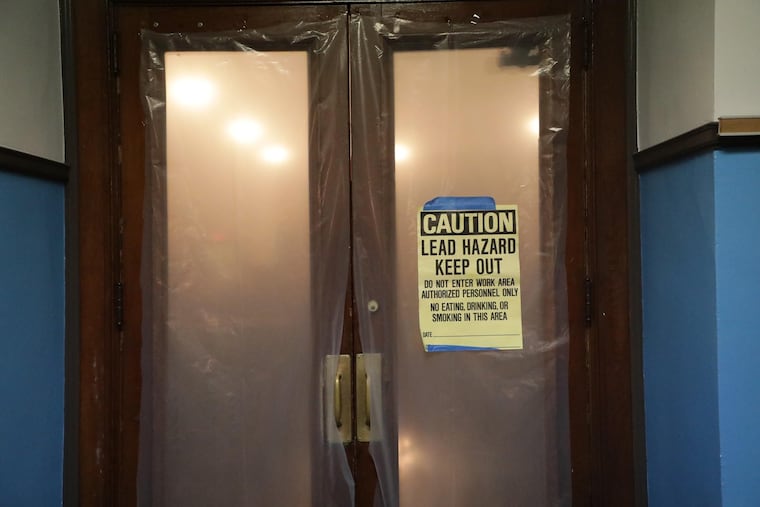Why aren’t dangerous schools a higher priority? | Editorial
Crumbling, aging, ill-maintained school buildings are not just health hazards to our children, but physical symbols of the decades of shortchanging the education of our city’s children

A scathing 2018 Inquirer report on the dangerous state of aging, crumbling, and hazardous schools throughout the city prompted something unusual: a fast response from both the city and the state. Gov. Tom Wolf and the Philadelphia School District devoted $15.7 million to cleaning up schools, and later, the city passed a law requiring schools to certify they are lead-safe. But all that was still not enough, and now State Sen. Vincent Hughes wants to devote $125 million to repairing and cleaning up schools throughout the state, with $85 million earmarked for Philadelphia schools.
Crumbling, aging, ill-maintained school buildings with lead paint, asbestos, outdated systems, and rodents are not just health hazards to our children, but physical symbols of the decades of shortchanging the education of our city’s children, especially the most vulnerable. Environmental hazards make them even more vulnerable, both physically and academically.
Hughes’ worthy proposal could cover lead and asbestos abatement, heating, venting and air-conditioning, and the removal of chemicals and toxins from schools, though the money will be far from a slam dunk. Hughes wants to fund part of the cleanup from an $828 million surplus in the state budget, generated in part by high tax revenues. But Republicans are already saying “not so fast” and warning against “spending sprees,” preferring to park a big part of the surplus in the rainy day fund. The fight for those dollars will be fierce. Never mind that in terms of priorities, children being in unsafe and hazardous public buildings should be considered a very rainy day.
Hughes also has an alternate plan for where the money might come from, that would claim dollars from variety of existing state programs and funds -- which is the equivalent of lifting up sofa cushions and collecting the loose change. We should not be nickel-and-diming the health of children whose public schools put them at risk.
Gov. Wolf and others have also suggested devoting money from a proposed severance tax on gas drilling to repair and upgrade schools in Philadelphia and the state. But a severance tax, which should have been imposed before the state’s fracking boom began in 2005, remains a long shot. Besides, those revenues could be needed to mitigate the future environmental impacts of this industry, which require more attention and research.
Finding the money for making schools safe shouldn’t be that complicated. For example, since 2004, the state has been generating billions of dollars in slots and table games. A percentage of those billions — currently, about $20 million a month — is earmarked for propping up the state’s horse-racing industry. Since gaming was legalized, the racing industry has gotten close to $3 billion.
Last we checked, that industry was faltering. Three billion dollars hasn’t helped. Isn’t it past time for the state to rethink its commitment to horses?
While those who bet on horse races may claim bigger winnings thanks to state support, children are being exposed to environmental hazards in their schools that put their health and ability to learn at risk. What do we value more: horses or children?